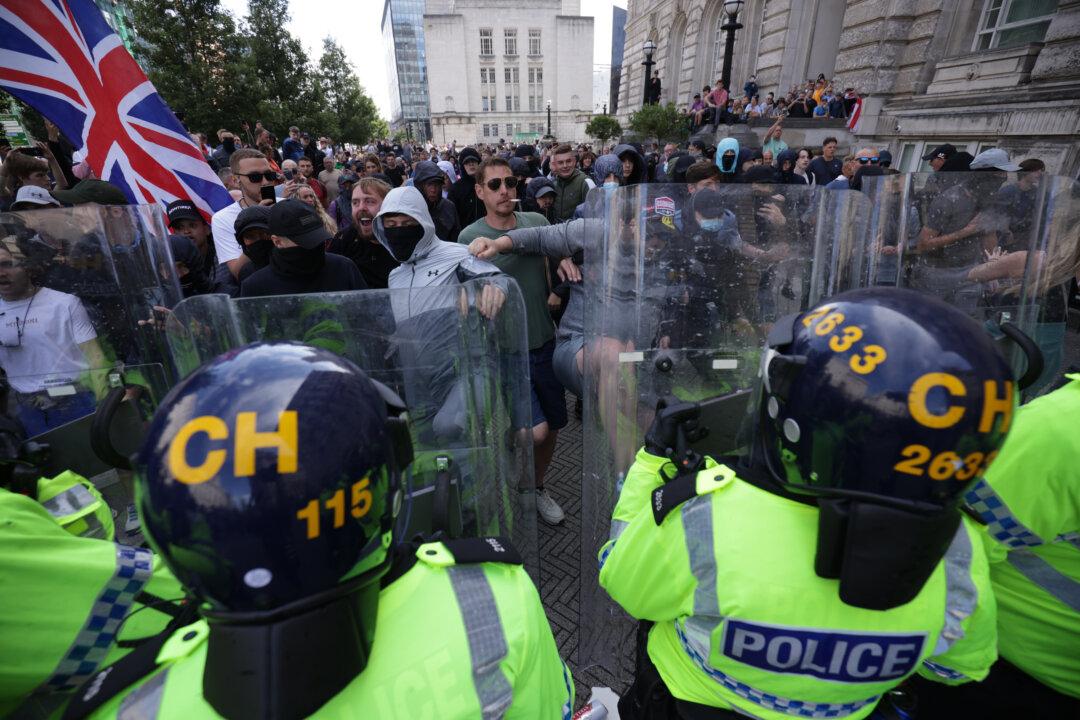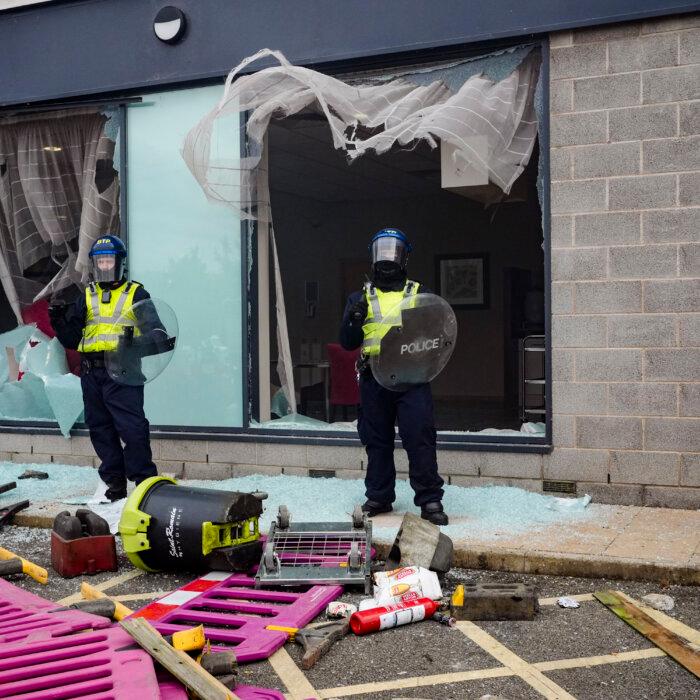The police inspectorate’s findings, published on Wednesday, reveal that the violent protests seen across England in July 2024 were not the result of a single cause or coordinated action by extremist groups, as suggested initially by some politicians and media reports.
The unrest took place across several cities, including Southport, Leeds, Liverpool, Hartlepool, central London, Sunderland, Rotherham, and Manchester.
It followed the July 29 attack in Southport, when 17-year-old Axel Rudakubana entered a children’s dance class and fatally stabbed three girls—Bebe King, Elsie Dot Stancombe, and Alice da Silva Aguiar. Ten others were injured.
Rudakubana, a British-born teenager of Rwandan descent, was later sentenced to a minimum of 52 years in prison.
In the days following the attack, it was reported that far-right groups had amplified the incident online, using it to stoke anti-immigration and Islamophobic rhetoric.
Social media platforms were criticised for allowing inflammatory and misleading content to circulate largely unchecked.
However, the review by His Majesty’s Inspectorate of Constabulary and Fire & Rescue Services (HMICFRS) found the violence was mainly unrelated to the protesters’ ideology or political views.
“Some people, including politicians, and many media outlets have suggested that the disorder was the result of well-organised and co-ordinated action by extremist groups. Others stated that the disorder was caused by deliberate, targeted disinformation from a variety of sources.
“However, we found that the causal factors were more complex than were initially evident.
Children and Community Involvement
Of the 1,804 arrests made during the unrest, 147 were of children, with some as young as 11 years old. The oldest person convicted for assault was 81. Many had no previous history of criminal or extremist activity.“What these conversations do not support is the prevailing narrative that misinformation, racism or far-right influences were responsible for young people’s participation,” the Commissioner’s report said.
While the police inspectorate found that the riots’ causes were “varied and complex,” it warned that police and politicians must take them seriously to help prevent future unrest.

Policing and Preparedness Criticised
The HMICFRS criticised police forces for being unprepared and slow to respond to the evolving situation, particularly the spread of online misinformation.Sir Andy Cooke, His Majesty’s Chief Inspector of Constabulary, said, “The police service needs to learn lessons from previous outbreaks of disorder; it must not be caught off-guard again.”
Cooke acknowledged that policing has become more difficult as online stories spread quickly and influence public opinion.
“Forces must be able to deal with the consequences of harmful information that spreads rapidly online. It’s vital that the legislation, regulation and enforcement of illegal online content improves to support this,” he said.
The review found that many forces had not implemented recommendations from previous major disorders in 2011 and 2021, leaving them with limited capabilities to monitor and respond to online threats effectively.
The National Police Chiefs’ Council (NPCC) has acknowledged that lessons must be learned but cautioned against placing sole responsibility for online content moderation on the police.
Law enforcement cannot and should not regulate social media, as that responsibility lies with users, platform providers, and regulators, the NPCC said.
Recommendations
Cooke called for social media companies to take more responsibility for the content on their platforms and urged Ofcom to be given greater regulatory powers to enforce timely action.“These companies must be held accountable—regardless of whether they’re based in the U.S. or China,” he said.
The inspectorate also issued three additional recommendations for police forces and other stakeholders.
These include helping police better understand and respond to online risks, improving how they gather and share information about unrest, and making investigations into related offences more effective.







